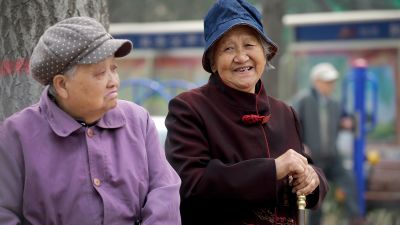The retirement age in China is notably among the lowest in the world's major economies, with men typically retiring at 60 and women at 50 or 55, depending on their occupation. This policy not only reflects the country’s historical socio-economic structures but also poses significant challenges as demographic shifts occur. With an aging population and declining birth rates, these low retirement ages contribute to a rapidly increasing dependency ratio, placing substantial strain on social security systems and healthcare services . The implications of this situation are profound; as life expectancy rises—currently averaging around 77 years—many retirees will draw benefits for decades while fewer workers support them.
Furthermore, the current retirement framework may hinder economic productivity. As many older individuals possess valuable experience and skills, mandatory retirement could result in a loss of human capital that is critical for maintaining economic competitiveness. In contrast to other developed nations that are gradually raising their retirement ages to adapt to similar demographic challenges, China's rigid structure seems increasingly outdated. This discrepancy highlights a pressing need for reform to allow more flexible working arrangements for older individuals who wish to remain in the workforce.
The top legislative body on Friday approved proposals to raise the statutory retirement age from 50 to 55 for women in blue-collar jobs, and from 55 to 58 for females in white-collar jobs.
The measures, which were approved by the country’s top lawmaking body following signaling from a key Communist Party body in July, also lay out plans to extend the minimum working period for employees to receive a monthly pension from 15 to 20 years, with changes starting from 2030.
They also include some flexibility in retirement age, especially for those who have already completed the minimum working period.
The change, which the government has been considering for about a decade, comes as China’s economy slows while Beijing grapples with the looming consequences of a rapidly aging population and a pension funding crisis.
The announcement sparked immediate widespread discussion – and backlash – across Chinese social media. Older workers also expressed frustration. Chen, a 52-year-old civil servant in Zhejiang, said “the bottom line is that they strip my retirement time and basically take my money from my pocket”. He added he would lose “two and half years of pensions”. Many of China’s young people have no siblings, due to the now defunct “one-child policy”, which limited the country’s birth rate for decades before it was eased in 2016. China also needs to keep its population in the workforce for longer to ease pressure on its underfunded pension systems, analysts said.
The new regulations also call on the state to “support young people’s employment and entrepreneurship, strengthen the development of employment positions for older workers … and strengthen the prevention and governance of employment age discrimination.”
Read more
Trailblazing ballerina Michaela Mabinty DePrince passes away at 29 Musician Jon Bon Jovi praised for talking woman off bridgeSarah H
Also on site :
- Altman claims Meta's attempts to recruit OpenAI talent with $100M offers were unsuccessful
- Megan Fox and Machine Gun Kelly reveal name of daughter three months after birth
- Love Island USA Fans Convinced Charlie Is Returning as a Casa Amor Bombshell as Hannah’s Sister Disapproves of Their Relationship

